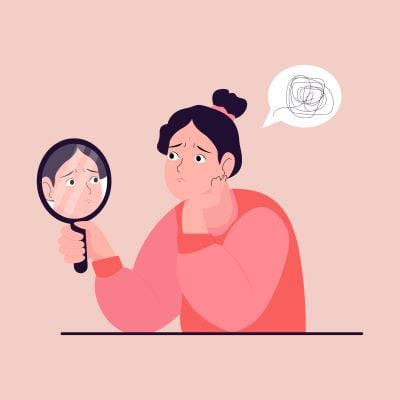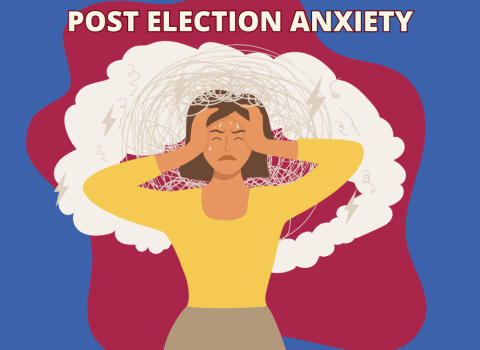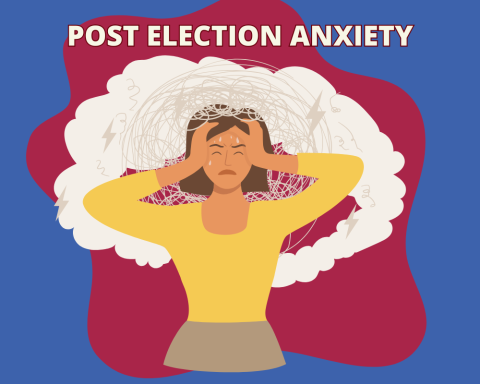Three Steps to Being Your Own Compassionate Coach when OCD Keeps You Stuck
Three Steps to Being Your Own Compassionate Coach when OCD Keeps You Stuck

For so many, there are intense feelings of shame once obsessions or compulsions subside for a moment. It might sound like, “There must be something seriously wrong with me if I had that thought”, or “Why would I ever picture something so awful?”, or even “Why can’t I just stop doing this compulsion and move on?” Whichever variation of There is Something Wrong with Me that your OCD brain offers you, we all know the end result. Feelings of shame and blame, frustration, sadness, guilt. Shame keeps you feeling stuck, anxious, and doubting the person you truly are.
Instead of beating yourself up for feeling anxious about your OCD symptoms, you can rewire your brain to help dial down self-critical thoughts and compassionately comfort the parts of yourself that are struggling. You don’t have to add another layer of suffering to your already existing pain. Here are three steps to approaching your OCD brain with compassion:
- Acknowledge your suffering – this hurts a lot right now.
If you can, identify your painful feelings. This might be difficult for some, and that is okay. Instead, focus on your experience – what is happening to you at this moment?
- This could sound like:
- I’m struggling right now.
- This is really hard to sit with.
- I am feeling so anxious, I feel it everywhere in my body.
- My brain is stuck on these thoughts, and it is distracting me.
- I can’t stop thinking about this – it is painful.
- It is hard to feel all this shame, guilt, and sadness.
- This is uncomfortable.
It’s important to validate your experience – it’s already happened. You can remind yourself that it’s as if OCD brain is holding up a huge sign with flashing lights and blaring its message through a megaphone – it really wants to make sure it grabs your attention (otherwise, OCD says, the consequences could be dire or full of discomfort that you can’t handle). And this signal feels so intensified, uncomfortable, and disruptive in this moment. Instead of fighting or avoiding the noisy signal that is there anyways, you can Name It to Tame It, a phrase coined by Dr. Dan Siegel.
2. Gently remind yourself that everyone has intrusive thoughts.
It is part of the human experience. Normalize your experience – it may feel like you are the only one with these unwanted thoughts. Remind yourself you are not alone. Right now, your experience of these thoughts or self-narratives has intensified. Our brains conjure up many thoughts and images to protect you from harm, whether it feels completely random or can be clearly linked back to your core beliefs and fears. The problem is that you are reacting to a false alarm. In these moments, rather than protect, you only need to arm yourself with helpful and compassionate coaching to guide you through the distress.
3. Return to where you are, exactly as you are. Stick with the facts.
Take a mindful moment. Give your brain a quick break from dealing with all the noise. The goal is not to stay 100% in the moment; rather try to work on the skill of shifting your attention from noisy self-criticism to the present moment. Some helpful 30-second mindful moments can include:
- Name all the things that are shaped like circles, or any other shape, around you.
- Name all the things that are blue, or any other color, around you.
- 3-3-3: Name 3 things you see, 3 things you hear, 3 things you can touch.
- Hands on your stomach and take 3 deep breaths. Focus on your hands moving up and down.
- Do a quick stretch or yoga pose with your focus on where you feel the stretch.
Notice that for even 30 seconds, you were only focused on the present moment. You probably weren’t thinking about what you had for lunch yesterday, or what you’ll be having for dinner tonight. The idea is that you also probably gave less attention to that self-critical voice in your mind, if even just for a moment.
Sometimes resistance to self-compassion can show up for clients. There are a few misconceptions about shame and self-criticism. Some think that if you don’t feel shame, you agree with your intrusive thoughts or that your own narrative about who you are, is in fact, true. Others may feel that it is deserved punishment for thinking such disturbing thoughts (as if you can even control those). Or punishment for being stuck in a cycle of compulsions that you know you ‘shouldn’t’ be doing (as if you would choose not to stop it if you it were that easy). This myth operates on the idea that if we punish ourselves with reminders of shame, we just might be able to create change. We forget that anxiety keeps us stuck in this cycle; you don’t want to be here. If we add more layers of distress, like shame to the already present anxiety, we now have fewer mental resources to work our way out of the OCD cycle.
Being your own Compassionate Coach doesn’t have to be full of over-the-top positivity. The goal is to provide yourself with understanding and deserved comfort through emotionally painful experiences. It helps you stay realistic, grounded in the present moment, and offers perspective that can help draw you away from all that OCD noise and into valued living. With less time and mental energy spent on feeling shame and self-criticism, you will be better able to focus on the important moments in your life.
This post is presented in collaboration with ADAA's OCD and Related Disorders SIG. Learn more about the SIG.





















